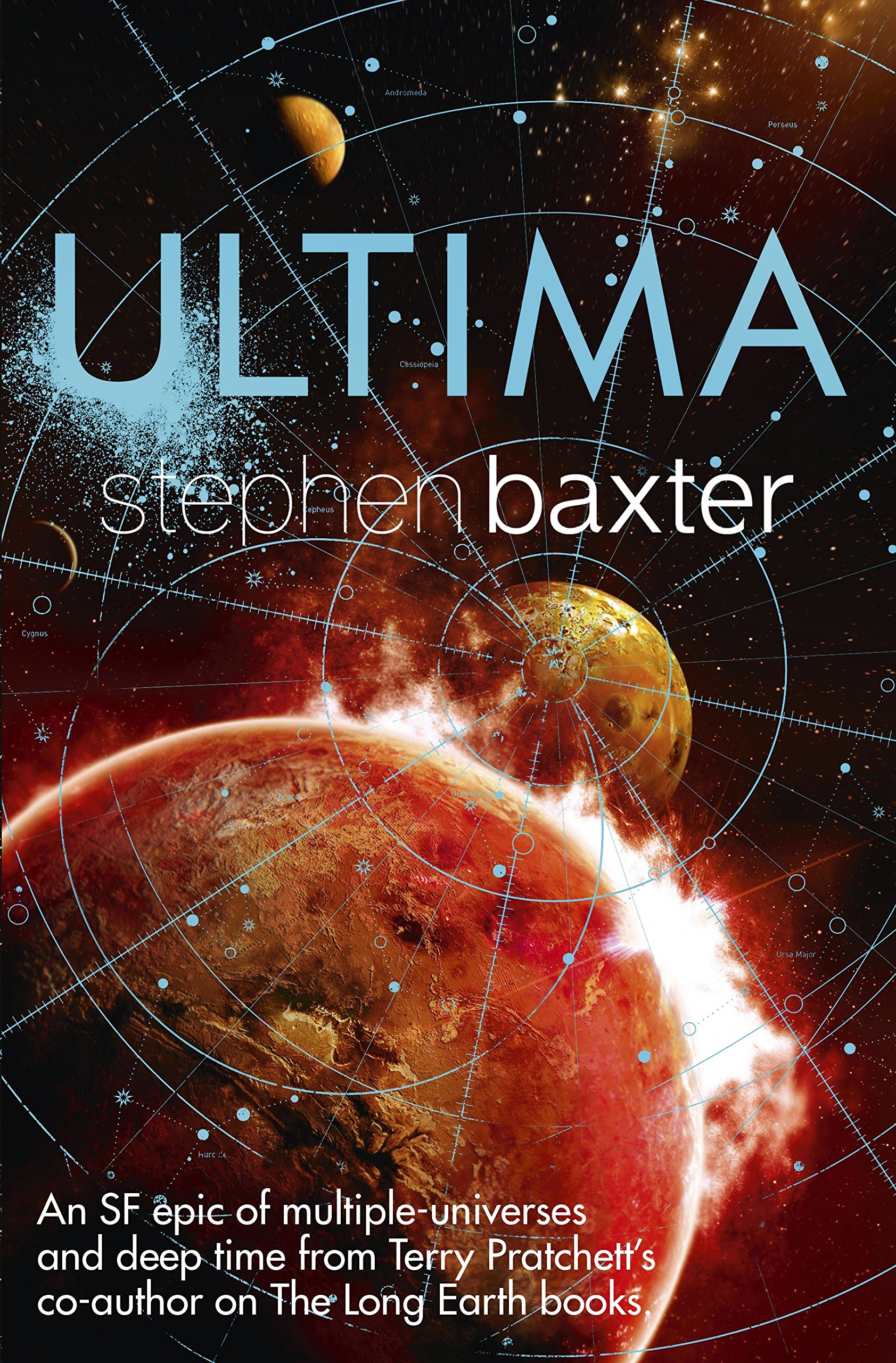From the review at The Bookbag.
" In Proxima, alien hatches were discovered across the galaxy, hatches that when opened caused completely unimaginable events to occur - amongst many strange happenings, one character suddenly had a twin she didn't have previously , and one hatch led to a different earth, where the Roman Empire never died.Well, I beg to differ. I read these two blockbusters back to back hoping for some transcendent plot-revelation .. which failed to ever materialise. It seems that there is some Stephen Baxter conservation law:
"It is there that Ultima begins - on a world where the Roman Empire never fell, and the technology and culture is markedly different as a result.
"This world is explored in length. Great length, and to be honest, reading about it begins to feel like quite a chore. Proxima was heavily character driven, and I went into Ultima hoping for more exploration of Yuri and Stef, but instead had to read what felt like a science fiction history book, with little tension, drive or excitement to make me want to keep turning the pages. It's a very well written exploration of a strange new culture, but given that the last book left me invested in characters and gripped to find out what would happen, I was disappointed to have to slowly read through a section that did absolutely nothing to thrill, entertain or challenge me.
"Thankfully, things do pick up - characters begin to become vivid again, and the story picks up such a pace that the finale is genuinely quite staggering - and I concede that it did make reading the book, especially the lackadaisical first two or so hundred pages, worthwhile. In addition, the ideas and concepts that Baxter is dealing with, as well as a diverse cast of voices with which he tells his story, really do come together to make for a fantastic story in the end."
Characterisation + Setting + Plot = constant.Setting-wise, Baxter recycles his Roman Empire studies from previous books together with lots of scientific extrapolation about planets circling red dwarf stars. This subtracts from his characterisation, his menagerie of black-and-white-delineated characters who are merely activated stereotypes (marionettes might be a better word). The plot is all that keeps the pages ticking over, but in the end that reduces to just another tedious multiverse fantasy.
So sorry, couldn't recommend these two. Use the sparse hours of your life more productively.
